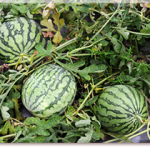The Bauchi State Public Finance of Agriculture (PFA) budget committee, comprised of Civil Society Organizations, has urged the Bauchi State Government to allocate funds for climate change mitigation and agroecology to ensure sustainable food production in the state.
During a press conference on the findings of the Bauchi State 2024 approved agricultural budget analysis, Mrs. Tabawa Atiku, the State Chairperson of the Committee, emphasized the importance of collaboration with relevant stakeholders to train smallholder women farmers on climate resilience. She stressed the need for tree planting and other protective measures, along with allocating budget lines for disseminating timely weather forecasts and climate information to farmers, empowering them to make informed decisions.
Given the escalating impact of climate change on agricultural productivity, Atiku highlighted the importance of prioritizing irrigation farming for food security and economic stability.
Atiku expressed concern over the meager allocations to the state’s agricultural sector and the limited involvement of smallholder women farmers in the budgetary process. She noted that agriculture received only 1.5% of the overall state budget for 2024, falling short of the 10% target set by the Malabo Declaration of 2014.
She pointed out that this shortfall hinders the achievement of Sustainable Development Goals (SDGs) related to poverty reduction, zero hunger, and good health and well-being at the state level. Additionally, she highlighted the challenges faced by smallholder women farmers, including post-harvest losses, high transportation costs, difficulty accessing credit and essential inputs, and limited knowledge of agricultural insurance policies and improved farming practices.
It’s crucial to acknowledge that the food crisis persists in both the state and the country as a whole. Currently, there’s a food price crisis affecting the entire state and country, disproportionately impacting the poor and vulnerable, including our smallholder women farmers.
“The devastation caused by floods not only affects farmland but also infrastructure like roads and access to markets, raising concerns about food insecurity,” Atiku emphasized. She highlighted a recent recommendation from the High-Level Panel of Experts on Food Security and Nutrition (HPLE) of the UN Committee on World Food Security (CFS), stressing the importance of governments supporting smallholder farmers and local communities through appropriate stimulus packages.
Atiku called for the revival and proper funding of the extension sub-sector to enhance productivity, suggesting a link between the Agricultural Development Program (ADP) and retired extension workers at the local government levels.
Moreover, she emphasized the need for adequate funding and implementation of monitoring and evaluation processes within the Ministry, urging collaboration with various stakeholders, including National Social Investment Program (N-SIP), Civil Society Organizations (CSOs), and smallholder farmers.
The committee proposed specific budget allocations for implementing the National Gender Policy in Agriculture and establishing a yearly Strengthening Access to Credit budget line. This funding should aim to simplify credit criteria and requirements, enabling easier access to credit for smallholder farmers, especially women, youths, and farmers with disabilities, at lower interest rates.
The Civil Society organizations forming the Bauchi State PFA Budget Committee include Fahimta Women and Youth Development Initiative (FAWOYDI), Rahama Women and Development Programme (RAHAMA), Women Empowerment Initiative Nigeria (WEIN), Bauchi State Network of Civil Society (BASNEC), Smallholder Women Farmers Networks (SWOFAN), Small Scale Women Farmers Organization in Nigeria (SWOFON), Association of Small-Scale Agro Producers in Nigeria (ASSAPIN), WODASS, Leadtots Development Initiative, Muslim Aid Initiative in Nigeria (MAIN), Bauchi State Activista, Centre for Information Technology and Development (CITAD), and Media.





